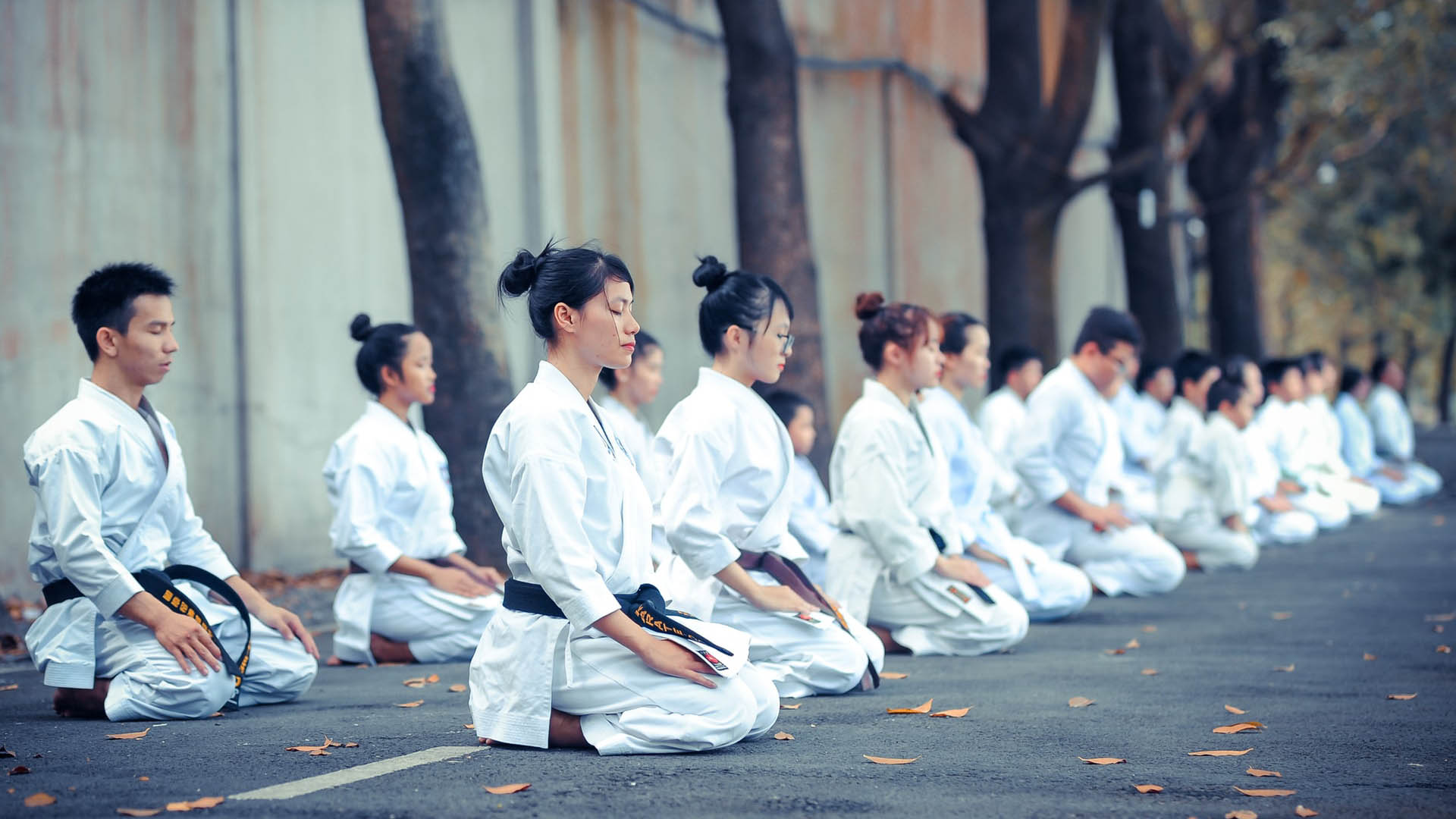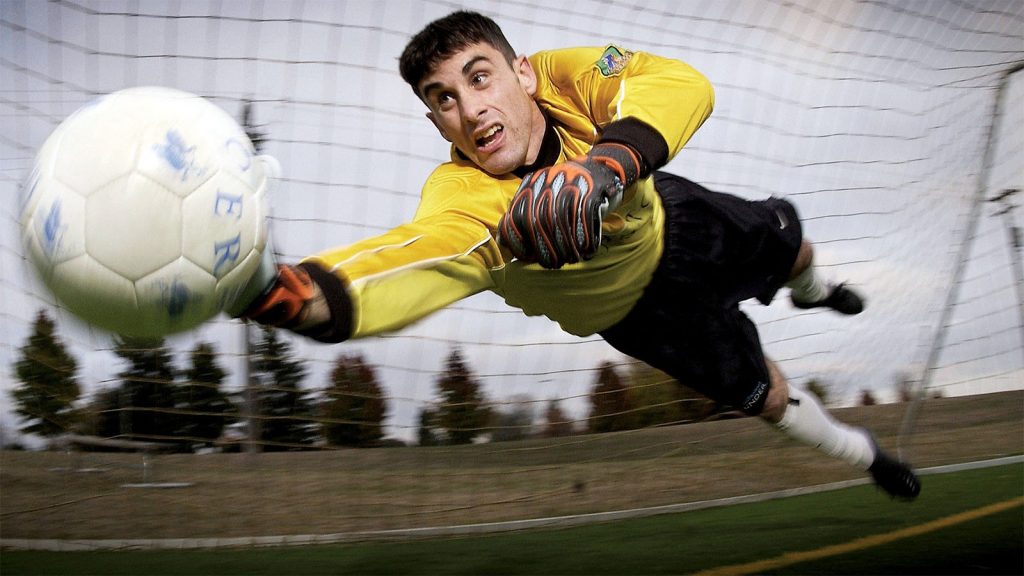Affiliate disclosure: Some of the links below are affiliate links, meaning, at no additional cost to you, I will earn a commission if you click through and make a purchase. As an Amazon Associate I earn from qualifying purchases.
19 practical reasons to meditate for lazy people
Although meditation is deeply rooted in Hinduism and Buddhism, with its religious elements stripped off, practically, it’s actually a non-sectarian, universal, and spiritual practice that can greatly benefit anyone regardless of their religious and or spiritual background.
In my meditative journey, I came to realize that meditation is more of an engineering than a religion. I’m aware that many meditation traditions have heavy religious elements embedded in them. So, I’d admit, maybe I’m a bit biased here.
I cannot say for others, but one thing I’m totally certain of is that as I go deeper and deeper into the practice, I find it less and less religious and more and more technical, and, spiritual. Yes, pardon me when I said the word “spiritual”. I’m aware that that term has a superstitious notion for some people. But, I’m not digging into this spiritual aspect in this post.
And you know what? I’m not the only one with this finding. It is shared by many other practitioners as well, some of them are people I know personally.
So, without its religious elements, meditation becomes universal. Anybody can practice it and benefit from it.
That being said, I’m aware that consistent daily practice is still a burden for a lot of people. There are also some shocking myths and misconceptions about meditation floating around that don’t agree with the facts. Essentially, they’re what meditation is not. Those fallacies can potentially hold people back from practicing meditation.
But, in general, laziness, lack of interest, and motivation are usually the culprit. So in this post, I will share with you these 19 practical reasons to meditate for lazy people. I hope they can keep you motivated and help you establish persistence and consistency in your meditation practice.
Table of Contents
1. Meditation is easier than you think.
Meditation is surely not the easiest thing to do, but, If you find it hard to meditate and maintain your consistency, chances are, you haven’t found the technique or style that suits you the best.
Using the “wrong” technique can cause you to easily lose motivation and interest in your practice. By wrong, it doesn’t necessarily mean a wrong technique. That’s why I put it in quotation marks. It just means not the right one for you.
Or, in case you’re dead sure that you’re using the right technique yet still lacking motivation, you can take advantage of these practical and effective meditation hacks to help you eliminate hindrances and take your meditation practice to the next level.
Personally, I use the mindfulness meditation technique because it is easier for me and it suits me really well. I’ve been practicing using this technique for eleven years now. And, I’ve been experiencing real and deep benefits from it, so much so that I can’t imagine a life without meditation.
To learn the mindfulness meditation technique, grab my free guide here.
To find out which meditation technique is the right one for you, check this post.
2. You can practice anytime and anywhere.

Meditation is not just about sitting still like a statue, cross-legged on a cushion. That’s only one of the many postures of meditation; the sitting posture.
There are several other postures like walking, standing, lying down, yoga poses and asana, and, of course, daily activity.
Certain traditions even use musical instruments in their meditation practice.
In general, meditation practice doesn’t require a lot of space. And, it certainly doesn’t require a specific time. Though, it’s advisable that you practice at the same time daily to build discipline and to maintain momentum.
I know some practitioners make a distinction between formal and informal practice.
An example of formal practice is when you’re doing your sitting or walking session. Or, it can also be in any other postures depending on the traditions or techniques being used.
Informal practice is when you’re applying what you learn through meditation in your daily life.
As for mindfulness meditation, you can do it anywhere and anytime. At anything you do, as long as you’re maintaining awareness with the right attitude, you’re meditating. It’s the daily-activity posture after all.
Having said that, formal practice is still very important.
3. Meditation helps relieve stress and anxiety naturally.

Meditation indeed has a relaxation component in it. And, relaxation in itself is already a natural stress and anxiety relief to a point.
But, meditation goes far deeper than just relaxation. Meditation can bring clarity and understanding to the mind. This clarity and understanding have the effect of uprooting all the seeds of negative mental states thus making it a natural relief for stress and anxiety.
Thanks to Jon Kabat-Zinn with his Mindfulness-Based Stress Reduction (MBSR) program, the effectiveness of mindfulness meditation practice in reducing stress and anxiety is now widely known.
This study presented some conclusions about the effectiveness of mindfulness meditation in this regard.
If you want to learn it online, I highly recommend this course.
4. Meditation helps stop panic attacks

The American Journal of Psychiatry published a study that was designed to determine the effectiveness of a group stress reduction program based on mindfulness meditation for patients with anxiety disorders.
22 participants diagnosed with generalized anxiety disorder or panic disorder with or without agoraphobia were submitted to the meditation-based stress reduction and relaxation program.
After repeated measures analysis and a 3-month follow-up period, 20 of the participants reported significant reductions in anxiety and depression scores with substantially reduced panic symptoms. And, these results were maintained at follow-up.
Learn how to use the mindfulness meditation technique to stop panic attacks in this post.
5. Meditation helps cure depression.

Again, thanks to its popularity, the effectiveness of mindfulness meditation in treating depression is well-documented.
Many studies have been conducted. You can check these reports: study-1, study-2, study-3, study-4, study-5.
In this post, another study even found some evidence that mindfulness meditation alleviates pain, anxiety, and depression to a similar degree as antidepressant drug therapy.
Mindfulness meditation strengthens your “AWARENESS MUSCLE”. The stronger your awareness muscle becomes, the weaker the effects the depression will have on you until finally, the depression loses its grip and you’re free. That’s how the process goes.
6. Meditation helps boost and maintain your immune system and general health.

To boost and maintain the immune system you need to work on two aspects: the physical aspect and the mental aspect.
Those two are directly related.
For example, if your mind is overly anxious or overly agitated, you’ll have trouble having good quality sleep thus hindering the recovery and rejuvenation of your body in the process.
Another example, if you’re not mindful enough, you’ll easily lose discipline in your diet and eat unhealthy food.
So, working on the mental aspect is the key to the whole holistic approach. This is where meditation practice plays an important role in boosting and maintaining the immune system thus improving your general health.
Boosting and maintaining our immune system is very crucial now, more than ever. Especially, since we’re now together experiencing the unfortunate coronavirus (COVID-19) pandemic.
With mindfulness, you’ll find it easier to work on your physical aspect: regular physical exercise, a healthy and balanced diet, and good quality rest.
The effectiveness of mindfulness meditation practice in improving the immune system is a science-backed fact. Several studies have been conducted in this regard. Check this study and also this to learn more.
7. Meditation helps build discipline.

With any practice whether it’s sport, music, science, or any other skills you need discipline. And, by practicing those activities, you’re executing and establishing discipline.
But, meditation practice has another additional hidden advantage.
It builds mindfulness, concentration, and focus which together, make building and maintaining discipline even easier.
8. Meditation improves mindfulness and concentration.

It’s no secret that meditation involves mindfulness and concentration. In meditation, you train your mind to be mindful and maintain that mindfulness for a longer period of time.
This results in better concentration. With better concentration comes many-fold benefits. You will be able to learn faster, work more effectively and efficiently. Also, you will make fewer mistakes.
As a result of better mindfulness, better concentration, and focus, you will improve your memory too. Check this article.
This report presents a study of a mindfulness meditation program conducted at the University of Massachusetts Center for Mindfulness. Using magnetic resonance (MR) images they found increased grey-matter density in the hippocampus, known to be important for learning and memory, and in structures associated with self-awareness, compassion, and introspection.
9. Meditation increases your attention span

This is another additional benefit resulting from improvement in concentration and mindfulness.
One study found that even a short four-day mindfulness meditation training is already enough to enhance the ability to sustain attention.
A study of the effects of meditation on multitasking performance showed that a group of participants who received an eight-week meditation training reported lower levels of stress, showed better memory for the tasks they had performed. They also remained focused on tasks longer and switched tasks less often.
Another study showed the effect of an eight-week mindfulness meditation course on the participants’ improved ability to orient and maintain attention.
Moreover, this review reported that several studies show that meditation can reverse some of the abnormalities in the brain network that contributes to mind-wandering, depression, anxiety, attention deficit, and PTSD.
The nature of meditation practice is maintaining awareness continuously.
Initially, you practice maintaining awareness only for the length of your formal sitting or walking sessions. But, ultimately, you’ll bring this new skill to your everyday life.
As you progress, the duration you can maintain awareness gets longer and so are your practicing sessions. As a result, your attention span increased accordingly.
10. Meditation helps you overcome fear and build confidence.

There are many kinds of fear; fear of failure, fear of the unknown, and other illogical fear. Meditation practice strengthens your awareness muscle. In turn, stronger awareness helps you to be more mindful of your mental state.
Mindfulness is so powerful when it’s well-developed. It can uproot the causes of fear by depleting its energy thus making the fear fade away.
And, meditation is a very effective tool for developing mindfulness.
11. Meditation increases your mental strength, resilience and emotional intelligence.

In his book, “Wise Mind, Open Mind,” a licensed psychotherapist, Ronald A. Alexander, Ph.D. reveals that the process of controlling the mind, through meditation, increases mental strength, resilience, and emotional intelligence.
Source: Ronald A. Alexander, Ph.D.
12. Meditation helps you let go of the past and move on.

Repetitive feelings of regret, guilt, anger, resentment, sadness, or frustration can make you feel trapped. It’s draining your energy and making you unavailable to enjoy life here and now.
A lot of people are having trouble letting go of this constant loop of sticky thoughts, feelings, and memories. They feel trapped and unable to move on.
You know what? It turns out that letting go is a skill you can learn.
Meditation practice can help you develop this skill of natural acceptance.
13. Meditation helps you have deep good quality sleep.

According to the National Sleep Foundation poll, more than 50 percent of the people reported at least one symptom of insomnia at least several times a week within one year.
Another report says 30 to 35 percent of adults have difficulty sleeping and 10 percent suffer from chronic insomnia.
Sleep debt is cumulative and good quality sleep is irreplaceable. If you’re suffering from sleep deprivation and you do nothing about it, in due times, it will have a serious heavy toll! Totally not worth it.
Fortunately, meditation is very effective in overcoming insomnia and achieving deep quality sleep.
14. Meditation makes you more energized physically and mentally.

If you train your mind to be calm, centered, and focused consistently, you will be mentally fit and energized. Combined with good quality rest from the previous point, it only stands to reason that you’ll get your body fit and energized too.
Long-term meditators also show signs of reduced biological aging and higher energy level.
Have you ever wondered why some people seem a lot younger than they actually are? Try to examine their mental state. They may not necessarily practice meditation in a formal sense but I bet their mental state is what meditation practitioners aim to achieve.
15. Meditation helps you radiate the positive mental energy to those around you.

When you meditate the right way, not only do you neutralize the negative mental energy in your mind, you also radiate the positive mental energy to those around you. It may not be apparent in the beginning state but long-term practitioners show these signs unmistakeably.
Have you ever felt calm and peaceful around certain people?
If not, maybe you’ve ever felt uneasy or anxious around certain people?
Those two examples above are the result of aura interaction. An aura is a form of energy. Mostly we cannot see it, but it’s real.
And, this positive aura will have a practical benefit as shown in the next point.
16. Meditation helps you build and maintain quality relationships.

There are several aspects of meditation practice that contribute to quality relationships. Right attitude, non-judgment, non-attachment, continuous awareness, non-reaction are some of them.
With the right meditation practice, you develop clarity and understanding in the mind. You will be calmer, more centered, and more peaceful. As a result, you’ll be less and less impulsive, and less and less reactive.
With a strong awareness muscle, you will be more mindful of your thoughts, your speech, and your actions thus making you unlikely to hurt others or behave improperly.
Furthermore, the right meditation practice will neutralize the negative mental energy (stress, anxiety, panic, depression) and, at the same time, cultivate positive mental energy (loving-kindness, compassion, empathetic joy, equanimity).
All this will only lead you to good quality relationships.
17. Meditation helps you achieve your goal.

Mindfulness, better concentration, improved memory and focus, and also, quality relationships give you a conducive situation for achieving your goal.
Also, with strong mindfulness, clarity, and a sharp mind, you’ll improve your decision-making. As a result, you’ll be more effective and efficient in whatever your endeavors are.
Whether you’re an entrepreneur, athlete, scientist, artist, writer, student, etc. meditation can help you unleash your true potentials and maintain your peak performance.
18. Meditation can help improve your finance
This is not a myth!
Consistent meditation practice using the right technique will result in a calm, stable, and balanced mind. That state of mind will keep fear and greed in check. Fear and greed are two mortal enemies of any successful financial endeavor.
Furthermore, a meditative state of mind increases your chances of being “in the zone” which is a conducive state for comprehending your financial situation thus putting you in a better position for making timely financial decisions.
If you read The Behavioral Investor by the New York Times bestselling author Dr. Daniel Crosby you’ll be convinced that if you want to be a better investor, you need to meditate.
Find out the many ways meditation can help improve your “money” aspect.
19. Meditation makes you live a happier and more purposeful life.

Continuous practice will bring you not only clarity and understanding but also a calm, centered, and focused mind. As a result, you’ll gain inner peace.
With all the negative mental energy getting weaker and weaker over time with consistent practice, you’ll also be spreading the positive mental energy to those around you thus leading to good quality relationships.
All the above points combined will only result in a happier and more purposeful life, nothing else.
Wrap it up
Ok, those are the 19 practical reasons to meditate for lazy people.
I hope you can find one, two, or even several points of the above list that make you tick and keep you motivated in your meditative journey.
If you need a simple and step-by-step guide for practicing mindfulness meditation, you can download my free e-book here.
Or, if you want to learn meditation online and harness all the benefits the meditation practice has to offer, I highly recommend this online meditation course called the Limitless Life program by Giovanni Dienstmann. It’s the most complete, comprehensive, step-by-step, and easy-to-follow meditation program that I know to date.
You can read my full review here.
Let us spread the positive mental energy to those around us.
Stay strong and stay well, and happy meditating 🙏.
Related posts
- Forget Self-Improvement, Do This Instead!
- 2 Main Reasons Why Most Self-Improvement Fails and How to Avoid Them
- 4 Tiny Steps to Reach Your Goals Without Motivation
- During the Coronavirus Covid-19 Pandemic, What’s the Best Thing Meditators Can Do?
- Effective Meditation Hacks for Lazy People
- Who Can Really Help You Stop the Fear of Panic Attacks?
- My Recent Posts
Featured photo designed by drobotdean / Freepik
- Too Much Mindfulness, Is There Such a Thing? - March 17, 2022
- 10 Ways Meditation Can Help Improve Your Finance (Number 9 Might Surprise You!) - January 7, 2022
- Forget Self-Improvement, Do This Instead! - September 16, 2021
